Lots of players fail to recognize when hands have showdown value.
They consistently flush money down the drain betting and raising when instead they should be taking a showdown line.
When your hand has showdown value your equity comes from getting all the way to showdown and winning.
So making it to showdown (cheaply) should be your number one goal.
What is Showdown Value?
A hand with showdown value is essentially a hand that's not quite strong enough to bet for value but strong enough to expect to win at showdown more often than not.
But like anything in poker, the answer to the question "Which hands have showdown value?" is "It depends."
It depends on the board texture, the action, your opponent, your table image and, well, in short, it depends on everything.
The golden rule of a hand with showdown value is that it's strong enough to win at showdown but not strong enough to bet for value.
In other words, the "A worse hand never calls and a better hand never folds" adage applies again.
Showdown Value?
You have
The flop comes
He calls. The turn comes
The river comes
Start out by asking yourself, "If I bet this river, will my opponent call with a worse hand?"
In this example, it's a pretty clear NO.
Ok, now what about if you check? Is there a chance your jacks are good?
Absolutely. If your opponent had any sort of draw or a pocket pair worse than yours on the flop, you almost surely have the best hand.
Check and take that free showdown because there's no value in betting.
The value your jacks have seeing a free showdown far outweighs both betting for value or betting as a bluff.
Related Reading:
Another Showdown Value Example
You have
What should you do?
On the flop, you made a continuation-bet. At this point your hand has no showdown value and the only equity you have is the fold equity you get by betting.
You want your opponent to fold. That's the only way you can win. Once the turn falls, though, everything changes.
All of a sudden you have a pair of eights and, well, showdown value. The bulk of your equity in the pot is no longer fold equity because you have a pair.
But should you bet it? No. Rarely, if ever, is a thinking player going to call with a worse hand. And he certainly isn't going to fold a better hand.
So we check with the intention of seeing a showdown.
Related Reading:
Barreling Doesn't Make Poker Sense
This example is a good one because lots of players will just barrel this turn 100% of the time, but that makes no poker sense.
Barreling this turn is pointless. The only way you make money is if your opponent folds. And if your opponent folds, you had the best hand anyway.
Barreling this turn would only be profitable if your opponent was especially weak and would either call two streets with a draw or, on the other end of the spectrum, fold a jack to a second barrel.
Both of which are very unlikely. The only thing barreling this turn accomplishes is building a bigger pot with you as the underdog.
Once you turn that hand with showdown value, your plans change. No longer is your equity in the hand from getting your opponent to fold. Your goal now becomes getting to showdown to see if you're good vs. his flop-peeling range.
Related Reading:
Put Your Opponent on a Range
Whenever you make a decision in poker, the most important factor is what your opponent has. Your opponent's range dictates what your most +EV decision is in every single hand you will ever play.
Putting your opponent on a range is an imprecise art. You slowly remove hands from his range as the hand progresses until you're left with a small range of his likely holdings.
If you can narrow down his holdings even a little bit, you'll be better able to suit your play to his.
Example:
Take the
When he peels the flop, we can put him on a range of jacks, flush draws, straight draws and 55-99. Sets and overpairs can be discounted.
When you turn the eight and are deciding whether or not to bet, you have to look at his calling range.
If he folds all draws and continues with 99+, his calling range has you crushed and your bet accomplishes nothing. If, however, he calls with worse than a pair of eights, then the bet is fine.
The same goes for if he folds better. If he for some reason folds a jack to your second barrel, your bet is perfectly fine as well because it actually accomplishes something.
The problem with an in between hand like eights in this example is there aren't many hands worse than yours that would be willing to call the turn bet.
Meaning we would just fold out the hands we were already ahead of. There's no value in betting there. The best play is to check behind and play poker on the river, hoping to see a free or cheap showdown.
Related Reading:
Keep Your Aggression Reined In
It's a very fine line sometimes, choosing whether the best play is betting for value, betting as a bluff or trying to see a cheap showdown.
But do your best to put your opponent on a range and ask yourself a few simple questions.
- Where does my equity in this hand come from?
- Is he going to call with worse?
- Is he going to fold better?
- Is there a chance I can win this at showdown?
Once you know where your value comes from you can act accordingly.
There's nothing wrong with being aggressive, but it needs to be controlled aggression. Playing hands with good showdown value aggressively, looking for a fold, just isn't profitable.
It will end up costing you far more money than if you just try to see cheap showdowns with them.
Keep your aggression reigned in. Use it when the only way you can win is getting your opponent to fold, or when you're betting for value.
If you can remember all that, and successfully put it into practice, you should immediately see better results with those in between, middle-pair type hands.
Related Reading:
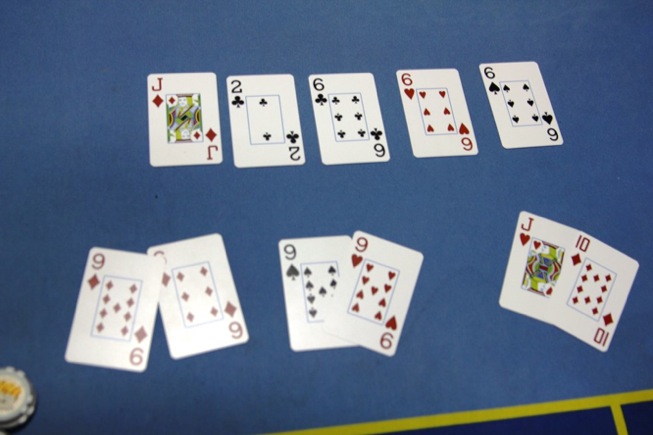

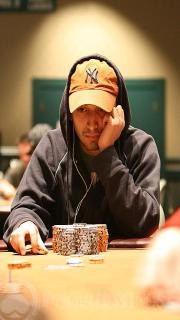

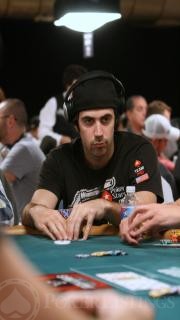
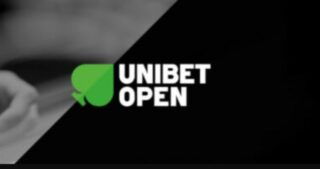
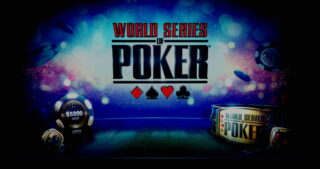



Just to double check, is the reason you would bet in Thomas’s example because based on the information you have at the time, you have a good chance of having the best hand, and there are 2 cards left to decrease the value of your hand, while in the example from the article where you hit the 8 on the turn, you already know the oppo called the flop, so you know he would probably have something better than pair 8’s, and there is only 1 card left to see that could weaken your hand (vs the 2 from the flop)?
But for stealing the pot then give it up for any call or raise, you don’t need any showdown value, do you? You can only win (when called) if it gets checked all the way down to showdown, and your opponent doesn’t fight back on any streets. The two remaining streets ruin your hand nearly as often as they would give you new showdown value holding some air highcards or weak draw. I guess having a good position for this stealing manouevre is more important than having some midpair-like weak showdown value (against multiple opponents).
Thomas,
Poker is situational, but the majority of the time in that situation you will have the best hand. If you’re playing against players who will fold, then you should always be betting there.
Just know that some players will have a better hand (and call), some player will have a worse hand (and call or raise) and some players may have a draw (and call or raise).
You’re goal here is not to build a pot, but to steal the small one while you have the best hand. Don’t commit yourself to this pot in any way, but it’s -EV to simply give up on it.
Just beware of wet boards. If there are three to a straight with two two a suit, chances are someone has a draw, so it might be best to just let that one go.
So When you flop middle or even top pair with a weak kicker in a limp multi way pot you should be betting? if it gets checked to you, to narrow the field?
Aaron,
With every additional card that comes, the value of your hand is lowered. For example, holding 78 on the flop A82 has you sitting with a decent chance at having the best hand.
If you let the board fill out to A82JQ, your hand is no longer looking very strong.
It is better to take the pot down now, than to wait. Just expect to run into players holding an Ace here from time to time. If anyone calls or raises, you need to shut down, or go away.
A situation I run into often is flopping middle pair. At the levels I play I see a lot of limped pots which I will join with suited connectors. Then I hit middle pair and take a stab at it because nobody shows any aggression preflop or postflop for those who act before me. (assuming I’m in middle position). Lets say I have 78s. flop A82. Checks to me. Should I bet hoping to make those with KQ etc. fold so they can’t hit? Betting here is often worked for me to take it down right here but I want to know if I am giving up my showdown value. When I win these I often feel I had the best hand anyway but prevented anyone else from making a better one. Thoughts?
Andy you are correct. It was a mistake and I’ve removed it.
Sorry if I seem stupid, but why do you put this villain on A6s if he peels the flop? Why the six? Wouldn’t many also peel it with A7, A8, etc…???
Thank you for the article. I read it right after making the mistake of betting in that position and ruining myself in a tourney.
Thank you for this article. It hones in on a serious weakness in my game, and has been very helpful. Seans comments clarified well.
Thanks Sean, it makes sense now. I guess an element of it is conquering your fears of getting sucked out on, and learning to make money by check-calling.
Can I make a request for an article on playing medium pocket pairs OOP?
Thanks again, your strategy articles are great!!!
Hey Ricardo,
I’m assuming Dan will answer for himself, but I’m here first, so I’ll chirp in my two cents.
I completely understand what you’re saying about wanting to protect your new-found equity. This is the first time in the hand you have any value, and it’s also the first time you’re not betting. Seems strange.
A couple of years ago I would have argued pretty strongly against Dan on this point, as of now I believe he’s absolutely correct.
There are three options:
A) you’re ahead of a very weak hand with few outs (such as a pair of 3’s)
B) you’re behind a Jack
C) you’re ahead of a weak hand with a lot of outs (over cards and a flush draw)
If you bet the turn you make A fold, a hand you would have beat at showdown anyways. You make B call, and you lose more money, and you either make the pot bigger for C going to a river, or you make C fold, a hand you had beat.
Also, betting again increases the pot, making it more attractive for your opponent to bluff the river.
You have very little showdown value with this hand, but you do have some. This is not a hand you want to play into a big pot, and it’s not a hand with enough value to protect. The ideal way for this to play out is to have the hand checked down for a win.
A better hand always calls you here, a weaker hand always folds. A draw is about 50/50. You lose more than you win by making a bet here.
on the 4hJc3c8d, why does it make sense to give the free card? If we are putting villain on possible flush draw then we’re in trouble if another club comes or a big card like an offsuit king then we lose as we have to check-fold the river. If our line is check-fold anyway, should we not be betting to protect our newfound hand equity?